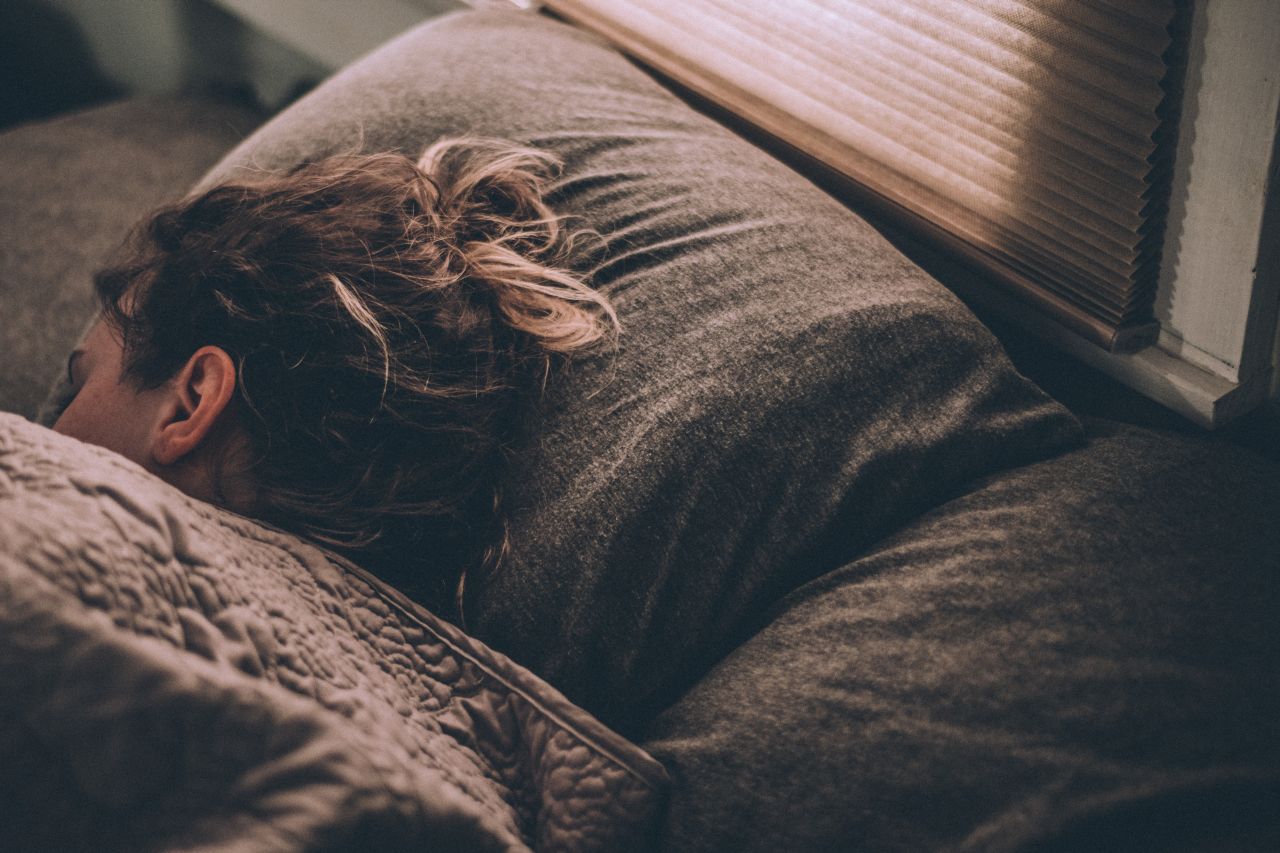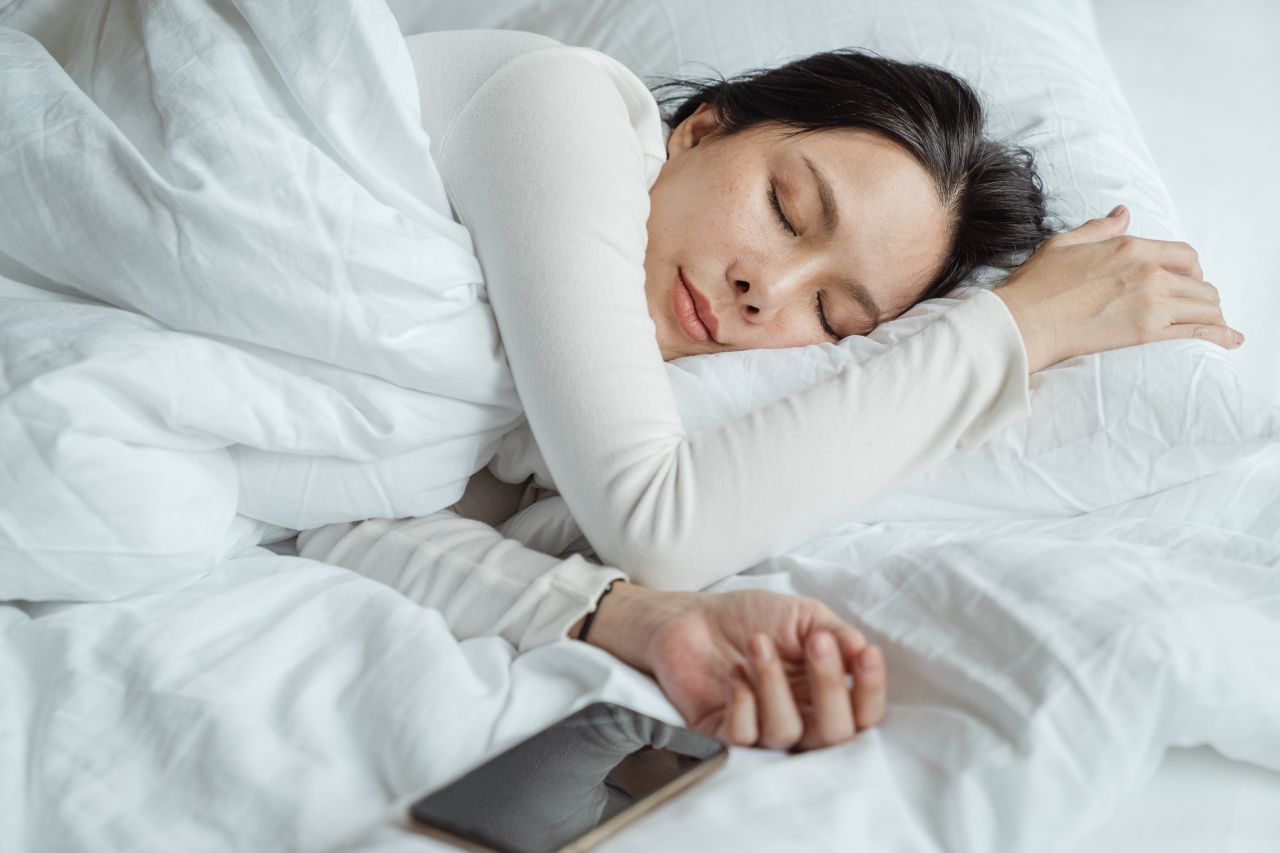When we sleep, our minds and bodies typically turn off. However, sleep is not a passive state where nothing happens; rather, it is a time of significant processing, restoration, and strengthening. It's still not entirely clear how or why your bodies are predisposed to such a lengthy slumber. However, there are vital functions of sleep that have been identified, and scientists know why we require it for our health and welfare.
Sleep has an important role in helping us consolidate and strengthen our memories. We take in a staggering quantity of data as we go throughout our daily lives. However, these information and experiences must first be stored and processed; many of these procedures take place while we sleep.
Consolidation, the process by which information is moved from less reliable short-term memory to more reliable long-term memory, takes place during sleep. Scientists have discovered that people's ability to remember and use knowledge improves following a good night's rest. Prolonged hours of sleep are necessary for everyone because they allow our bodies to recover, renew, build muscle, repair bone, and produce hormones.
You spend roughly one-third of your day sleeping, making it an extremely important element of your schedule. Getting a good night's sleep, and getting plenty of it at the correct times, is just as crucial to your health as eating and drinking. The neural connections necessary for learning and memory formation can't be formed or maintained without sleep, and those functions, along with others like attention and reaction time, suffer as a result.
Multiple brain processes, including the interaction of neurones, are dependent on adequate sleep. Your body and brain maintain remarkably high levels of activity even during sleep. New research suggests that as you sleep, your brain cleans itself of the poisons that accumulate during the day.
Although sleep is essential to human functioning, its biological function is a mystery. The body's brain, heart, and lungs, as well as its metabolism, immune function, emotions, and resistance to disease, are just some of the many tissues and systems that are impacted by sleep. High blood pressure, coronary heart disease, diabetes, anxiety, and obesity are just some of the conditions that have been linked to insufficient or poor quality sleep.
Scientists are just beginning to scratch the surface of sleep's complexity and dynamic effects on human performance. The functions of the brain and the mechanisms by which sleep is regulated are discussed in this pamphlet.
In a constant 24-hour cycle, our bodies secrete chemicals that encourage us to respond in predictable patterns. The term "circadian rhythm" is used to describe each of these cycles. Melatonin, a sleep-inducing hormone, is a key component in this process. When the body's melatonin levels rise in the evening to peak around midnight, we know it's time to sleep. Then, it gradually fades away till daylight, when we might emerge feeling rejuvenated.
Circadian Rhythms and Life
There is a biological clock in the brain that regulates your body's 24-hour cyclical rhythms. This clock is essential because it responds to light cues, increasing melatonin production at night and turning it off in the morning. Because they can't see or respond to such light cues, people who are totally blind typically have problems sleeping.
Not only do humans have circadian rhythms, but so do plants, animals, mushrooms, and even microorganisms. The periodic release of hormones that signal when and where to initiate and terminate certain functions is triggered by external signals such as light. Feeding periods in bees, leaf movements in plants, and Plasmid dna in fungi are all regulated by circadian rhythms. One of the most well-known functions of circadian rhythms is their regulation of sleep patterns in humans.
The need to sleep is called "sleep drive," and it's just as important as the need to eat. It's normal to feel an increasing need to sleep as the day progresses. A key distinction between slumber and hunger: When you're hungry, your body won't make you eat, but when you're weary, it'll make you sleep wherever you are. When you're really tired, your body can even fall into brief periods of microsleep lasting only a second or two even though your eyes are wide open. Your body's natural sleep drive can be disrupted if you nap for longer than 30 mins later in the day.
The regulation of sleep and wakefulness is called sleep-wake homoeostasis. In order to maintain homoeostasis, the body has a homeostatic sleep drive that triggers when a specific amount of time has passed. This sleep drive increases in strength with each additional hour of wakefulness, resulting in longer, more restorative sleep following a time of sleep loss.
Medical issues, drugs, stress, the sleep environment, and the foods and beverages you consume can all affect your sleep and wake times. Light has a significant impact, perhaps more than any other factor. Light is detected by photoreceptor cells in the retina, which then relay that information to the brain to prompt an earlier or later sleep-wake cycle, respectively. Trouble falling asleep and getting back to sleep after being awakened by light is a well-documented phenomenon.
Because their normal circadian rhythm and sleep-wake cycle is interrupted, people who work the night shift often have problems snoozing when they go to bed and also have trouble remaining awake while on the job. When people travel to a new time zone their internal clock, known as the circadian rhythm, becomes disjointed from the external clock, resulting in jet lag.
Our bodies use this time-of-day information to trigger the production of melatonin, which helps us stick to a consistent 24-hour sleep cycle. The retina of the eye is the initial site of this process. A signal is sent from the retina to the nucleus, which helps regulate sleep and wakefulness, when the retinal is exposed to light.
Hormone and temperature regulation are both influenced by signals sent from the suprachiasmatic nucleus to other regions of the brain. The endocrine system, a tiny pinecone-shaped brain structure where melatonin is produced, receives signals from the brain via the spinal column and sends them back up to the brain. Those signals suppress melatonin production by the pineal gland during the day. But when it's nighttime, the pineal gland isn't disturbed by these signals, and melatonin is produced instead. In other words, melatonin is suppressed by light, which keeps us aware, and melatonin is secreted in response to darkness, which urges us to "go out to sleep!"
The Role of Genes and Neurotransmitters

Chemical Signals to Sleep
Getting ready for bedtime increases activity in regions of the brain that are associated with sleep. Neurotransmitters, substances released along nerve fibres, can reduce the excitability of cells that provide signals of arousal and relaxation. GABA is known to induce drowsiness, muscular relaxation, and sedation. Some areas of the brain are kept active while we are awake by norepinephrine and orexin. The neurotransmitters acetylcholine, histamine, epinephrine, cortisol, and zoloft also play important roles in determining when we sleep and when we wake up.
Genes and Sleep
The amount of sleep we require can be heavily influenced by our genetic makeup. Genes that regulate neuronal excitability and "clock" genes like Per, tim, and Cry that affect circadian and the timing of sleep have all been identified by scientists as potential contributors to sleep and sleep disorders. Multiple regions of DNA on different chromosomes have been linked in genome-wide association studies to an increased risk of developing sleep disorders. In addition, certain genes have been linked to specific sleep disorders as narcolepsy, restless legs syndrome, and advanced sleep-phase syndrome in one family. It has been found that the expression levels of some genes in the brain's cerebral cortex and many other regions vary between when we're asleep and when we're awake. The worm, the fruit fly, and the zebrafish are just a few of the genetic models that researchers are using to better understand the molecular pathways and genetic variants that underlie healthy and disturbed sleep. More study is needed to fully comprehend the links between genetics and the prevalence of circadian related sleep disorders.
Sleep Studies
A polysomnogram, or some other test, may be suggested by your doctor in diagnosis a sleep condition. Investing the night at a bed lab or bed centre is required for a polysomnogram. All night long, it monitors and stores data such as your heart rate, oxygen levels, ocular and limb movement, and brain waves. It even records you as you sleep, both visually and audibly. The information can be used by a sleep doctor to see if you're getting to and progressing through each of the different stages of sleep. A care plan or the necessity of additional testing may be formulated based on the findings.
Teens and Melatonin
We now know that it is more difficult for teenagers like Jilly to get up early due to differences in their sleep chemistry, a fact that has only been clear in the last few decades. About hour later there in 24-hour sleep cycle than those in children or adults, melatonin production occurs in teenagers. As a result, people stay up late, and then feel groggy and tired first thing in the morning since SNAT is also still active and they continue to making melatonin.
Most adolescents need nine hours sleep a night. However, they only get 7 hours of sleep daily on average due to their late sleep time and the early start times of their schools. Their inability to concentrate and learn is hampered by their constant fatigue, brought on by a lack of adequate rest.
So, what happens if a high school, like Jilly's, begins later in the day? A lot of progress has been made, according to school officials. Minneapolis, Minnesota, changed its school day to begin at 8:40 a.m., earlier than the previous start time of 7:15 a.m. Attendance and enrolment increased, and it was discovered that kids slept an extra five hours each week, on average. In addition, daytime alertness rose, and depressive symptoms decreased.
Almost 17 percent fewer car accidents involving teenagers occurred in the two years after Fayette County, Kentucky, switched to a later school start time. As a result, it seems that taking into account a shift in the schedule of melatonin secretion in adolescents can have a variety of positive effects.
However, not all high school students have access to classes that begin later in the day. About 40% of U.S. high schools began before 8 a.m. during the 2011-2012 school year. What, therefore, can you accomplish if you find yourself among this set? The first step is to reduce the amount of nighttime artificial lighting. This includes the glow from electronic devices such as televisions, computers, and mobile phones. These lights trick your body into thinking it's sunlight, hastening the breakdown of SNAT while suppressing melatonin production. You won't feel sleepy, which makes it hard to get to bed on time.
You can increase the amount of sleep you get by not sleeping in on the weekends. The body will try to convince you to sleep in on the weekends to make up for the sleep it didn't get during the week, which seems paradoxical. In truth, though, messing with your body's internal schedule by sleeping in on the weekends might make it even more challenging to get up on weekdays.
Why You Need Sleep

It should come as no surprise to anyone who has ever experienced brain fog following a poor good nights sleep because sleep has a major effect on cognitive performance. To begin, "brain plasticity," the visual cortex ability to change in response to new information, is greatly aided by getting a sufficient amount of rest each night. We have more problems recalling new information and retaining information from the day if we don't get enough sleep. It has also been hypothesised that sleep facilitates the brain's elimination of metabolic byproducts, a process that appears to be less effective so when brain is awake.
Conclusion
Our bodies and brains normally shut down during sleep. Memory consolidation and enhancement occur primarily during sleep. Researchers have found that getting enough shut-eye can boost memory and cognitive performance. The processes by which sleep is controlled and its role in the brain's functionality are explored. The need for sleep, sometimes known as "sleep drive," is a fundamental biological imperative on par with the need for food.
Sleep-wake homoeostasis refers to the state of equilibrium between sleep and wakefulness. Your body won't force you to eat when you're hungry, but it will force you to sleep when you're exhausted. Light is a major influence, possibly the most important one. When the body recognises that it is nighttime, it begins to produce the sleep hormone melatonin. Norepinephrine and orexin are neurotransmitters that keep certain parts of the brain active and hence awake.
The excitability of cells that carry signals of alertness and relaxation is lowered by neurotransmitters. Possible factors to sleep and sleep disorders include genes that influence neuronal excitability and "clock" genes like Per, tim, and Cry, which govern circadian and the timing of sleep. In order to diagnose a sleep disorder, your doctor may recommend a polysomnogram or another test. Teenagers typically only receive 7 hours of sleep every day because of their late bedtimes and early school mornings. The city of Minneapolis, Minnesota, has moved its school day start time up to 8:40 a.m.
Enrollment and attendance both rose, and youngsters slept an extra five hours every week. If you don't sleep in on the weekends, you can boost the amount of sleep you get. The degradation of SNAT is accelerated by exposure to artificial light since the body interprets it as sunshine. You may find it even more difficult to get out of bed on weekdays if you mess with your internal schedule.
Content Summary
- It is as important to your health to get a good night's sleep, and to get enough of it at the right times, as it is to eat and drink.
- Relationship Between the Circadian Rhythm and Biological Processes
- The circadian rhythms of your body are controlled by a biological clock in your brain.
- Human sleep cycles are regulated by circadian rhythms, which is one of the most well-known roles they play.
- Researchers have found a number of genes that may have a role in sleep and sleep disorders, including those that govern neuronal excitability and "clock" genes like Per, tim, and Cry, which influence circadian and the timing of sleep.
- To completely understand the connections between genes and the frequency of circadian-related sleep disorders, more research is required.
- They sleep late and wake up early, so they only receive 7 hours of sleep per day on average.
- However, not all high school students can attend later-starting classes.
- Reduce the use of artificial lights after dark as a first step.
FAQs About Sleeping
During sleep, your body is working to support healthy brain function and maintain your physical health. In children and teens, sleep also helps support growth and development. Getting inadequate sleep over time can raise your risk for chronic (long-term) health problems.
Sleep is important to a number of brain functions, including how nerve cells (neurons) communicate with each other. In fact, your brain and body stay remarkably active while you sleep. Recent findings suggest that sleep plays a housekeeping role that removes toxins in your brain that build up while you are awake.
Professionals can evaluate sleep quality through sleep studies and instruments such as the Pittsburgh Quality Sleep Index (PSQI). The PSQI is a series of questions about sleep-related behaviors and is used in both clinical and research settings.
Not only is sleep an essential process to the body's everyday functions, it can also help to ward off cancer, diabetes, heart disease, and stroke. Our brains use around 20 percent of the body's total energy consumption. One of the main functions of sleep is to replenish the hard-working brain circuitry.
The longest recorded time without sleep is approximately 264 hours, or just over 11 consecutive days. Although it's unclear exactly how long humans can survive without sleep, it isn't long before the effects of sleep deprivation start to show. After only three or four nights without sleep, you can start to hallucinate.





